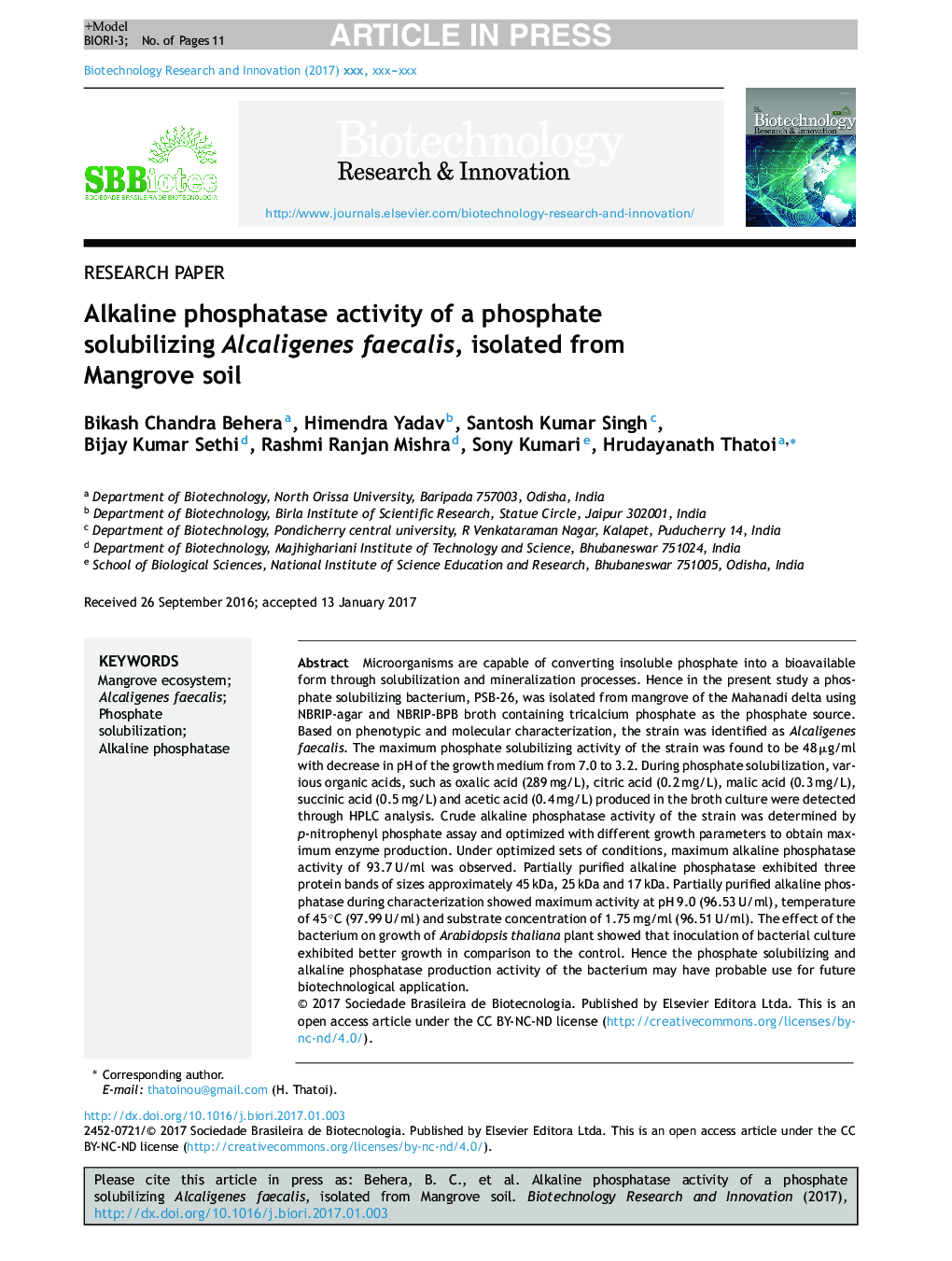| Article ID | Journal | Published Year | Pages | File Type |
|---|---|---|---|---|
| 8922953 | Biotechnology Research and Innovation | 2017 | 11 Pages |
Abstract
Microorganisms are capable of converting insoluble phosphate into a bioavailable form through solubilization and mineralization processes. Hence in the present study a phosphate solubilizing bacterium, PSB-26, was isolated from mangrove of the Mahanadi delta using NBRIP-agar and NBRIP-BPB broth containing tricalcium phosphate as the phosphate source. Based on phenotypic and molecular characterization, the strain was identified as Alcaligenes faecalis. The maximum phosphate solubilizing activity of the strain was found to be 48 μg/ml with decrease in pH of the growth medium from 7.0 to 3.2. During phosphate solubilization, various organic acids, such as oxalic acid (289 mg/L), citric acid (0.2 mg/L), malic acid (0.3 mg/L), succinic acid (0.5 mg/L) and acetic acid (0.4 mg/L) produced in the broth culture were detected through HPLC analysis. Crude alkaline phosphatase activity of the strain was determined by p-nitrophenyl phosphate assay and optimized with different growth parameters to obtain maximum enzyme production. Under optimized sets of conditions, maximum alkaline phosphatase activity of 93.7 U/ml was observed. Partially purified alkaline phosphatase exhibited three protein bands of sizes approximately 45 kDa, 25 kDa and 17 kDa. Partially purified alkaline phosphatase during characterization showed maximum activity at pH 9.0 (96.53 U/ml), temperature of 45 °C (97.99 U/ml) and substrate concentration of 1.75 mg/ml (96.51 U/ml). The effect of the bacterium on growth of Arabidopsis thaliana plant showed that inoculation of bacterial culture exhibited better growth in comparison to the control. Hence the phosphate solubilizing and alkaline phosphatase production activity of the bacterium may have probable use for future biotechnological application.
Related Topics
Life Sciences
Immunology and Microbiology
Applied Microbiology and Biotechnology
Authors
Bikash Chandra Behera, Himendra Yadav, Santosh Kumar Singh, Bijay Kumar Sethi, Rashmi Ranjan Mishra, Sony Kumari, Hrudayanath Thatoi,
